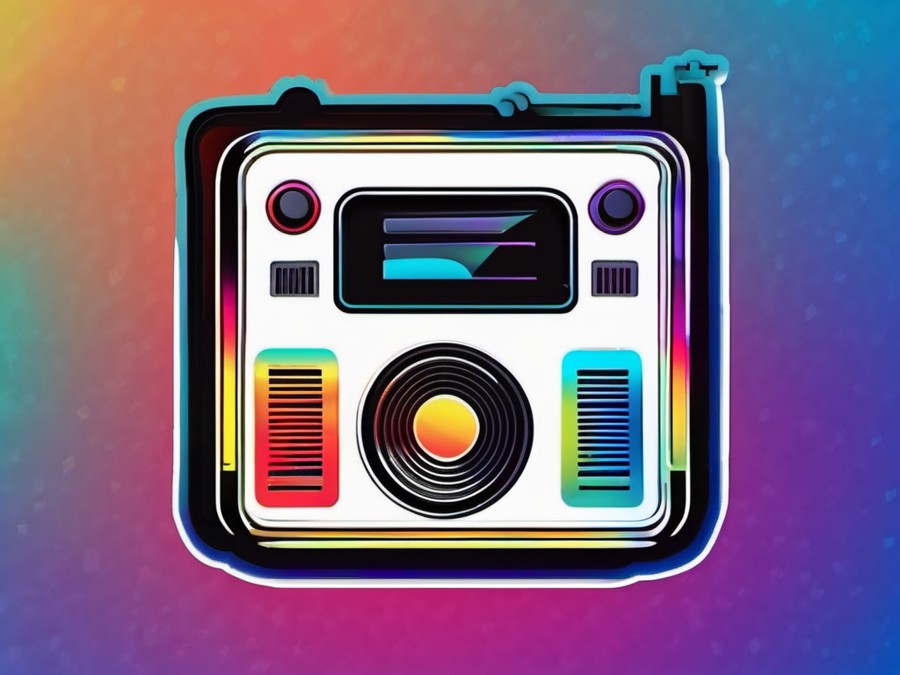· Charlotte Will · Receivers · 8 min read
What is a Digital Radio Receiver and Its Benefits?
Discover the benefits and advantages of digital radio receivers compared to traditional analog radios. Learn how they work, key features, real-world applications, and why switching to digital is a game-changer.

Understanding the Basics of Digital Radio Receivers
What is a Digital Radio Receiver?
A digital radio receiver is an electronic device that captures and decodes digital audio broadcasts (DAB). Unlike traditional analog radios, which receive signals over FM or AM frequencies, a digital radio receiver uses digital data transmission to provide high-quality audio with minimal interference. Think of it as having a personal DJ in your pocket, delivering crystal-clear sound and a wide range of stations directly to you.
How Does a Digital Radio Receiver Work?
Imagine tuning into your favorite station and suddenly, the quality improves tenfold. Digital radio receivers work by receiving digital signals transmitted from broadcast towers or satellite networks. These signals are then processed and converted into audio by a digital tuner within the receiver, ensuring that what you hear is as close to the original source as possible.
The Evolution from Analog to Digital
Analog radio, which has been around for over a century, used continuous waves to transmit information. However, the advent of digital technology has revolutionized audio broadcasting by converting sound into digital data. This evolution has led to enhanced signal quality and a broader spectrum of available stations, making digital radio the norm in many parts of the world.
Key Components and Features of Digital Radio Receivers
The Digital Tuner
The heart of a digital radio receiver is the digital tuner, which decodes incoming signals and converts them into audible sound. This component is crucial for maintaining the high quality and clarity that digital radio promises, ensuring that every note and word reaches your ears perfectly.
Connectivity Options
Modern digital radio receivers come with a plethora of connectivity options. Bluetooth allows you to stream audio directly from your smartphone or other Bluetooth-enabled devices, while Wi-Fi connectivity lets you access internet radio stations. Some models even feature USB ports and SD card slots for additional versatility.
Display and Interface
A user-friendly interface is essential for a seamless listening experience. Digital radios often have color LCD screens that display station information, signal strength, and other pertinent details. The intuitive design ensures that you can easily navigate through menus and settings without any hassle.
The Benefits of Using a Digital Radio Receiver
Enhanced Audio Quality
When it comes to sound quality, digital radio trumps analog in every aspect. There’s no static or background noise, and the clarity is unparalleled. Listening to music or talk shows on a digital radio receiver feels like you’re in the same room as the performers or speakers.
Reduced Interference and Better Reception
One of the most significant advantages of digital radio is its resistance to interference. Unlike analog signals, which can be disrupted by physical obstacles or electronic devices, digital signals are robust and reliable. This means you can enjoy your favorite programs without annoying interruptions, even in challenging environments like buildings or when driving.
Variety of Stations and Content
Digital radio offers a vast array of stations and programming. From news and sports to music and talk shows, there’s something for everyone. And with digital radio, you can access international stations and listen to content from all over the world. It’s like having a global radio dial right at your fingertips.
Portability and Convenience
Many digital radio receivers are designed to be compact and portable, making them ideal for on-the-go use. Whether you’re commuting to work or going on a camping trip, a digital radio can keep you company with your favorite tunes and shows. Their battery life is often impressive, ensuring that you can enjoy your entertainment for hours on end.
Additional Features and Functionality
Modern digital radio receivers come packed with features that enhance your listening experience. Many models include pause, rewind, and record functions, allowing you to control your audio just like you would with a CD or DVD player. Some even have sleep timers and alarms, making them versatile for various situations.
Real-World Applications and Scenarios
Home Entertainment Setup
Integrating a digital radio receiver into your home entertainment system can significantly enhance your audio experience. Portable models can be moved from room to room, while stationary units can be connected to your home theater setup. With high-quality speakers and a digital radio, you’ll feel like you’re at a live concert every time you turn on the music.
Portable Use for Travel and Outdoors
Digital radios are perfect companions for travel and outdoor activities. With their durable design and long battery life, they can withstand the rigors of camping trips, hikes, or road trips. Whether you’re listening to nature programs in the park or following a sports game while on vacation, a digital radio ensures you never miss out.
Professional and Commercial Use
Digital radio receivers are not just for personal use. Businesses and professionals can benefit from using them to stay informed with the latest news, weather updates, and industry-specific programming. For instance, a digital radio in an office can keep employees up-to-date with current affairs and enhance workplace productivity.
Comparison with Traditional Analog Radios
Advantages of Digital over Analog
The advantages of digital radio over analog are numerous. Noise reduction is a significant benefit, as digital signals are less susceptible to interference and background noise. Additionally, broader channel availability means you can access a wider range of programming, including niche and international stations.
Limitations and Considerations
While digital radio has many advantages, it’s not without its limitations. Initial setup can sometimes be complex, and the technology may require more power than analog radios. It’s also important to ensure that your digital radio receiver is compatible with the broadcasting standards in your area.
Choosing the Right Digital Radio Receiver
Factors to Consider When Buying
When shopping for a digital radio receiver, several factors should be considered. Price is often a primary concern, but you should also look at features like portability, connectivity options, and audio quality. Reviews and recommendations can provide valuable insights into which models are the best fit for your needs.
Top Recommendations for Different Needs
If you’re looking for the best in home entertainment, a stationary digital radio receiver with high-quality speakers is the way to go. For portable use, a compact model with good battery life will serve you well. Some of the best-rated models offer both portability and high audio quality, making them versatile for various situations.
The Future of Digital Radio Technology
Emerging Trends and Innovations
The world of digital radio is constantly evolving. Integration with smart home systems is a growing trend, allowing you to control your digital radio using voice commands or mobile apps. Additionally, advancements in streaming technology are making it easier than ever to access a vast array of content from around the globe.
Predictions for the Next Decade
As technology continues to advance, we can expect even more innovative features in digital radio receivers. Artificial intelligence (AI) may play a significant role, with smart radios that learn your preferences and suggest new content tailored to your tastes. Internet connectivity will likely become even more integral, blurring the lines between digital radio and internet streaming services.
Conclusion
Digital radio receivers offer a wealth of benefits that make them an excellent choice for anyone seeking high-quality audio and a diverse range of programming. From enhanced sound quality to reduced interference, digital radio provides a superior listening experience compared to traditional analog radios. Whether you’re setting up a home entertainment system, looking for a portable companion, or seeking a reliable business tool, there’s a digital radio receiver out there that fits your needs.
FAQs
What is the difference between DAB and FM/AM radio?
DAB (Digital Audio Broadcasting) and FM/AM are two different methods of transmitting radio signals. DAB uses digital data transmission to provide higher sound quality and more channels, while FM/AM use analog methods that are more prone to interference.
Can I use my digital radio receiver in the car?
Many digital radio receivers are portable and can be used in a car, although some may require an adapter to connect to the vehicle’s power supply. Check your receiver’s specifications for compatibility and features designed for car use.
How do I set up my digital radio receiver at home?
Setting up your digital radio receiver at home is typically straightforward. Plug in the power supply, connect any external speakers or devices if necessary, and follow the user manual to scan for available stations. Most digital radios have an automatic tuning feature that makes setup a breeze.
What are the best digital radio stations to listen to?
The best digital radio stations vary depending on your interests. Whether you prefer music, news, sports, or talk shows, digital radio offers a wide range of options. Explore different genres and stations to find the ones that suit your tastes best.
How can I troubleshoot common issues with my digital radio receiver?
If you encounter issues with your digital radio receiver, start by checking the power supply and ensuring all connections are secure. If the problem persists, consult the user manual for troubleshooting tips or contact customer support for assistance.




